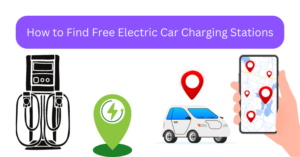There is no one answer to this question, as the costs of charging an electric car will vary depending on many factors, such as the size and type of charger used, your location, and the electricity rate in your area.
However, a general estimate would put the cost at around $0.20 to $0.50 per kilowatt hour (kWh). So, if you were to charge your electric car for 10 hours using a traditional wall outlet charger, that would cost you between $2 and $4!
In this article, we will tell you how much charging cost comes from which type of charger. For more information, read this article thoroughly.
Cost to Charge an Electric Car at the Station
Most people charge their car at only 2 places, at their homes, and from the charging station. This article will tell you how much it costs to charge your electric car from a charging station.
This is not a fixed cost; this charging cost is variable and varies according to place and time. This is because electricity rates vary in most areas.

The estimated cost of a commercial charging station ranges from around $15 to $35. This cost is much more than the charger installed at home because on this, you charge the car on the roadside.
The cost of charging each electric car’s battery depends on the kilowatt-hour (kWh). The cost of a typical kilowatt-hour (kWh) ranges from approximately $0.50 to $15 Doller in the United States. This makes the cost of the battery to be total from about $10 to $60. The cost varies depending on the quality of the charger. If you want to charge by paying less money, it will take you more time; it is called slow charging, as there are standard chargers installed at our house. If you want to charge your car quickly, you need to pay more to charge your vehicle quickly in about 1 hour.
Best Time to Charge an Electric Car
The best time to charge an electric car is deep night. This is really because there are 2 reasons for this; the first is that after driving the car all day, the time of night is such that the vehicle is free.

The second reason is that the temperature is low at night and is also good for the environment. Electricity is primarily stable at night, and the charger and battery do not heat up during charging due to low temperatures. Because if the battery is at a low temperature during charging, it remains calm and gives a good performance, due to which its life is also good.
The best way to charge an electric vehicle is at night time. On setting during the same day, there are chances of the battery getting hot due to the possibility of reducing the battery’s lifespan. If your car battery gets hot during charging, it is not a good sign; during this, the electrics get heated and destroyed, due to which there is a problem in backing up, and our car is running fewer miles.
How to Find Free Electric Car Charging Stations
Everyone wants to see a free charging station, but people do not know how they are found. You can find a free charging station in many ways, such as searching online on Google, finding out from the dealer, checking using social media, etc.
One great way to search for free electric car charging stations is through Google Maps. Just enter the name of your city or town into the search bar, and Google will list all the available charging stations near you. You can also type specific keywords like “electric cars” or “charging station.”
In the free charging station, you can charge your electric car without paying any money. The free charging station is also a kind of purpose that is given to the customers. As a charging station is newly opened, the company offers free charging for a few days, and the company offers free service to promote its charging station.
What is the Average Cost to Charge an Electric Car?
The average cost to charge an electric car depends on which state you live in and which electric car you have. The cost of charging depends on the battery’s capacity; the higher the cost, the higher the cost. Generally, the cost ranges from about $0.50 to $3 per kWh.

